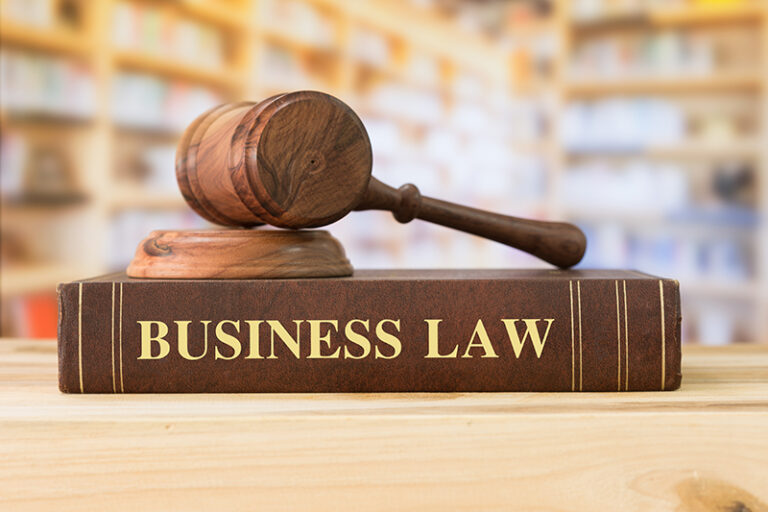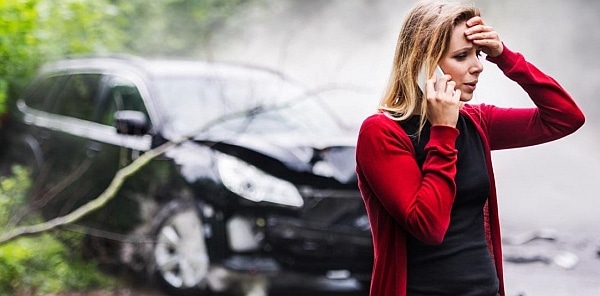Failing to report a car accident in Georgia can lead to serious legal and financial consequences, especially when injuries or significant property damage are involved. When an accident happens, Georgia law requires drivers to report certain accidents, and neglecting to do so can result in criminal charges, fines, and difficulties with insurance claims. Whether the accident seems minor or severe, understanding your legal obligations is essential to protect your rights.
In this blog, we will explore the legal requirements for reporting a car accident in Georgia, the potential consequences of failing to report, and how working with an experienced Douglasville car accident lawyer can help protect your rights and ensure a smooth claims process.
Legal Requirements for Reporting an Accident
In the event of a Georgia car accident, drivers are legally required to report certain accidents to law enforcement. Failure to comply with these laws can result in serious legal consequences, including fines and possible jail time.
When is Reporting Mandatory?
Under Georgia law, drivers must report any accident resulting in injury, death, or property damage exceeding $500. Even if the accident appears minor, it is better to notify the authorities. In many cases, what seems like minor damage can later reveal itself to be more extensive, making police documentation crucial.
Statutory Obligations Under Georgia Law
The law requires drivers involved in accidents to notify the police “immediately” and “by the quickest means of communication.” This includes accidents that occur on public roads or highways, and even parking lots under certain circumstances. Failure to do so may result in criminal charges, especially if the accident involves injury or death.
Consequences of Failing to Report an Accident
Failing to report an accident in Georgia can lead to serious legal and financial consequences, especially when serious injuries or significant property damage are involved.
Criminal Penalties
Failing to report an accident can lead to face criminal charges. If the accident involves minor injuries or property damage, the offense is considered a misdemeanor. This can result in a fine of up to $1,000 and up to one year in jail. However, if the accident results in serious injury or death, the penalties are much harsher, with potential prison sentences ranging from one to five years.
Hit-and-Run Charges
Failing to report an accident can escalate into hit-and-run charges if the driver leaves the scene without providing the required information or offering assistance. Georgia law requires drivers to stop at the scene and provide their name, address, vehicle registration, and license if requested. They must also help anyone injured, which can include calling emergency services. Hit-and-run offenses carry even more severe penalties, including longer prison terms and substantial fines.
Impact on Insurance Claims
Failing to report an accident to the police can also complicate insurance claims with your insurance company. Insurance companies often rely on police reports to determine fault and assess damages. Without this official documentation, proving your claim becomes more difficult, and you may be denied compensation for vehicle repairs or medical expenses.
Why Drivers Avoid Reporting Accidents
Many drivers choose not to report car accidents due to fear of immediate consequences, but this decision often leads to more serious problems in the long run.
Fear of Increased Insurance Premiums
One of the most common reasons drivers avoid reporting accidents is the fear that their insurance premiums will increase. Many drivers believe that if they handle the situation privately, they can avoid the financial impact of higher rates. However, failing to report an accident can result in even costlier consequences, including denial of future insurance claims.
Driving Under the Influence or with a Suspended License
Some drivers avoid reporting accidents because they were breaking the law at the time of the crash, such as driving under the influence of alcohol or with a suspended license. These drivers fear criminal charges if their actions are discovered. However, not reporting the accident can lead to harsher penalties, including hit-and-run charges and additional legal consequences.
Avoiding Legal Repercussions
Drivers with prior violations or outstanding legal issues may fear that reporting an accident will lead to further legal trouble. They hope to avoid any interaction with law enforcement. Unfortunately, this avoidance often worsens their legal standing, leading to more serious charges and complications that could have been mitigated by simply reporting the incident.
Impact on Insurance Claims
Failing to report an accident can severely affect your ability to file and process an insurance claim, often resulting in denied coverage and financial hardship.
Difficulty Proving Fault
When you fail to report an accident, the lack of an official report makes it harder to prove who was at fault. Insurance companies rely heavily on police reports to determine liability. Without this documentation, the claim process becomes more challenging, and you may struggle to prove that the other driver was responsible.
Denied Compensation
If you fail to report an accident, insurance companies may deny your claim altogether. Without a police report or proper documentation of the accident, the insurer may argue that the accident never occurred or that the damages and injuries are exaggerated. This can leave you responsible for costly vehicle repairs and medical expenses.
Delays in Claim Processing by Insurance Company
Even if your claim is not denied outright, not reporting an accident can lead to significant delays in processing. The lack of a police report forces insurance adjusters to gather additional evidence, prolonging the time it takes to settle your claim. This can result in financial strain as you wait for reimbursement or repairs.
How Failing to Report an Accident Affects Your Claim
Failing to report an accident can have serious implications for your ability to pursue compensation, especially in personal injury cases.
Loss of Critical Evidence
A police report is often a key piece of evidence in personal injury claims. Without this official documentation, proving the circumstances of the accident becomes much more difficult. The report includes important details like the officer’s observations, witness statements, and initial assessments of fault, all of which can support your claim. Not having this evidence can weaken your case and make it harder to establish liability.
Challenges in Proving Injuries
When an accident goes unreported, it can be harder to link your injuries directly to the incident. Insurance companies and opposing parties may question the legitimacy of your injuries if there is no official record of the accident. This could result in a reduction or outright denial of compensation for medical expenses and other damages.
Reduced Legal Leverage
Failing to report an accident may leave you with less leverage in negotiations with insurance companies or in court. The absence of an official police report can cast doubt on your version of events, making it easier for insurance companies to dispute your claim or offer a lower settlement. In contrast, a well-documented accident report strengthens your position in pursuing fair compensation.
What to Do After a Car Accident
Taking the right steps immediately after a car accident can protect your health, legal rights, and financial interests.
Check for Injuries
Your first priority after a car accident is to ensure your safety and the safety of others involved. Check yourself and passengers for injuries, and seek medical attention immediately, even if injuries seem minor. Some injuries, like whiplash or internal damage, may not be immediately apparent but can worsen over time.
Contact Law Enforcement for a Police Report
Call the police to report the accident, especially if there are injuries, fatalities, or significant vehicle damage. An official police report is critical for insurance claims and any potential legal actions. Ensure that you provide accurate information to the responding officers.
Exchange Information
While waiting for law enforcement, exchange contact, insurance, and vehicle registration details with the other driver. This information will be necessary for filing insurance claims. Make sure to double-check all the details to avoid delays in the claims process.
Document the Scene
Take photos of the accident scene, including vehicle damage, road conditions, and any visible injuries. Collect witness information and write down a detailed account of what happened. This documentation will help build your case if you need to file a claim or pursue legal action.
Contact an Attorney
Consulting with an experienced car accident lawyer is a wise move, even if the accident seems straightforward. A lawyer can review the police report, gather additional evidence, and handle negotiations with insurance companies. Legal advice ensures that you follow all necessary steps and helps you pursue compensation for medical expenses, property damage, and other losses.
Consult With an Experienced Douglasville Car Accident Attorney ASAP!
If you’ve been involved in a car accident and are unsure about your legal obligations or how to proceed, don’t wait until it’s too late. Our team at Hartley, Rowe, & Fowler are here to help you navigate the legal process, protect your rights, and ensure you get the compensation you deserve.
Contact us at 678-825-6004 for a free case consultation!







